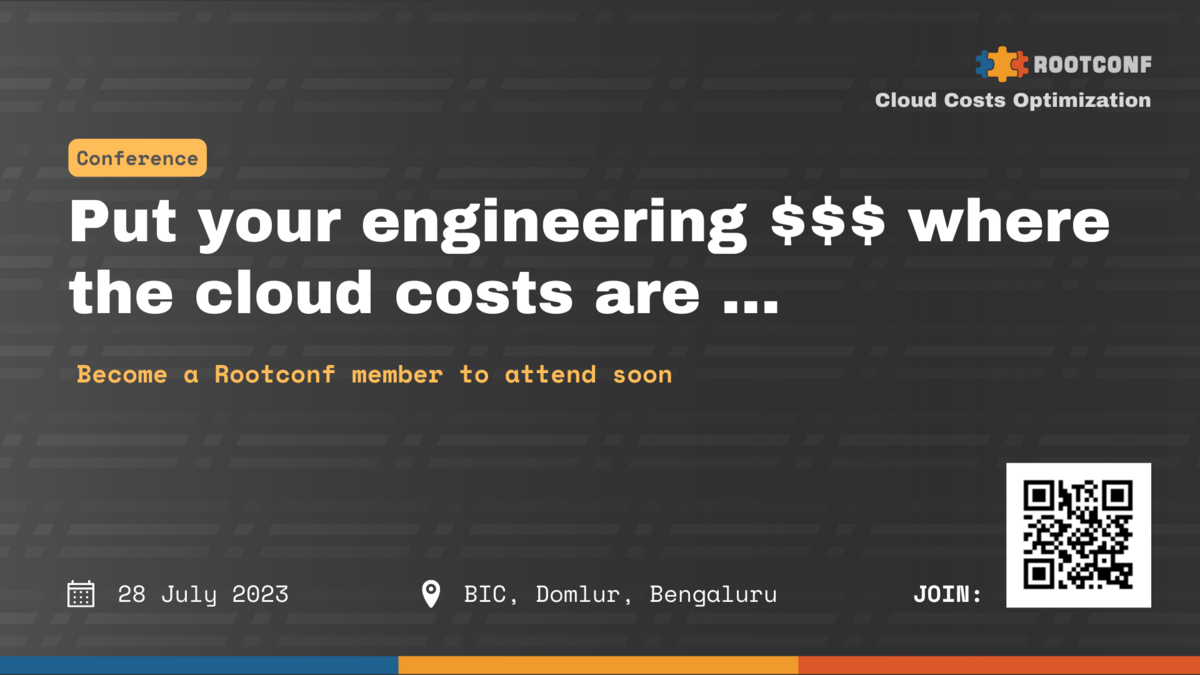
Cloud Costs Optimization
Practical case studies, experience reports and tooling use cases from startups and enterprises
Jul 2023
24 Mon
25 Tue
26 Wed
27 Thu
28 Fri 12:10 PM – 06:00 PM IST
29 Sat
30 Sun
Submitted Jun 28, 2023
Cloud costs are increasing rapidly if we take into consideration only the bill which is charged from Enterprises by the cloud cost provider and obviously everybody wants to reduce it. However, while defining costs, there are much more aspects to be investigated in an Enterprise , rather than just looking at the charges in the bill. For example, time to market for product or product innovations, which can give you the edge over you your competitors, should be considered while analyzing costs. Similarly, the cloud provides out-of-the-box SRE functions, and DevOps functions, when developed from scratch in an on-prem environment need much more capital to start with. The SLA commitments of infrastructure services and security features help individual teams to not reinvent the wheel, but rather concentrate on solving actual domain problems.
Cloud costs in an enterprise is a discrete number, rather it is cumulated and aggregated effort of multiple functions like business\product road maps, Operational readiness, etc., and hence rather than just reducing the numbers on the bill, we should concentrate more on how the reduced cost affects the overall earning of organization.
Additionally, there is a technical side to this as well. Types of infrastructure, types of workloads, scaling needs, and types of environments also determine the cost. This generally gets reduced when we do things correctly on the cloud.
This talk is going to deep dive into defining the cloud costs in the right way, rather than just billing from Cloud providers, and will take the audience to negotiate a practical number with stakeholders in the organization on the cost budget, to minimalize surprises. Also, this talk will talk about patterns\strategies on the cloud (in general), followed by organizations to optimally use the cloud resources.
Below is the agenda:
Note: All the scenarios are based on Speakers day-today SLB experiences while handling cloud cost related talks\discussions\tasks.
Estimated Time: 50 minutes.
Key take aways:
This talk intends to redefine the naïve definitions of cloud costs, and rather give a more contextual cloud cost definition to audience. Audience will be more mature while discussing and taking actions related to cloud cost. Audience will be able to assess the known vs unknown and then predict the costs, reducing surprises across department in the organization.
Hosted by
Supported by
Sponsor
Sponsor
Partner
{{ gettext('Login to leave a comment') }}
{{ gettext('Post a comment…') }}{{ errorMsg }}
{{ gettext('No comments posted yet') }}